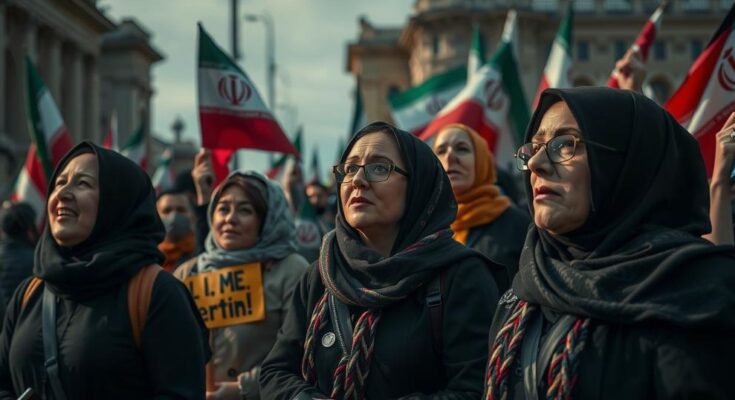Women in Iran are leading a courageous campaign against executions, recently winning a reprieve for activist Sharifieh Mohammadi. The state continues to execute individuals as a means to suppress dissent. The interconnectedness of local activism with global abolitionist movements is becoming increasingly prominent, as women demand an end to systemic violence in Iran’s harsh prison environment.
In Iran, women are at the forefront of a rising resistance against brutal executions amid a dire human rights crisis. The Supreme Court recently overturned the death sentence for Sharifieh Mohammadi, a feminist labor activist, despite her wrongful association with alleged rebel groups. The current pace of executions, numbering 570 in 2024 alone, highlights a systematic oppression aimed at silencing dissent. Activists argue that Iran’s execution policies act as collective punishment against those pushing for social justice. The United Nations has called for a moratorium on the death penalty in Iran, where the government employs capital punishment as a terror tactic to quell voices advocating for human rights. Iranian women’s activism intertwines with global abolitionist efforts, particularly in the context of oppressive gender policies and executions of dissenters. The “No to Executions” campaign, amplified by political prisoners like Reza Rasaei, spotlights the courage of women in dangerous prisons like Evin, where they demand justice and an end to unjust capital charges. These brave souls, wrongly accused of rebellion, endure extreme repression yet continue their protest against horrific human rights violations. Despite enduring violence and medical neglect, women in Evin Prison continue calls for justice. Human rights defender Vida Rabbani describes the constant lowering of their rights, reducing their very existence to subhuman conditions, manipulated by a system that negates their agency. This highlights the precarious yet determined fight for human rights. This initiative echoes a growing demand for solidarity with international abolitionist movements, representing the interconnected struggle for rights and dignity. The fasting revolutionary spirit of political prisoners has sparked global attention, calling for an end to capital punishment and oppressive practices, shedding light on the brutal reality faced by women and activists in Iran.
Iran’s current crisis of human rights is underscored by a staggering rise in executions, revealing a state mechanism aimed at silencing dissent and maintaining authoritarian control. Since 1979, thousands have faced executions, notably for drug offenses and political activism, exacerbating the environment of fear. The recent efforts by activists within the Women, Life, Freedom movement connect domestic issues of oppression to global abolitionist campaigns, challenging the misogynistic and brutal regimes in place.
The tireless efforts of Iranian women at the forefront of the struggle against capital punishment and systemic oppression are poised to inspire global action. Their collective resistance challenges the narrative of subjugation by highlighting the resilience of political prisoners who risk everything for justice. Ultimately, this movement not only represents the fight for women’s rights in Iran but also serves as a rallying point for international calls to abolish the death penalty.
Original Source: www.thenation.com



